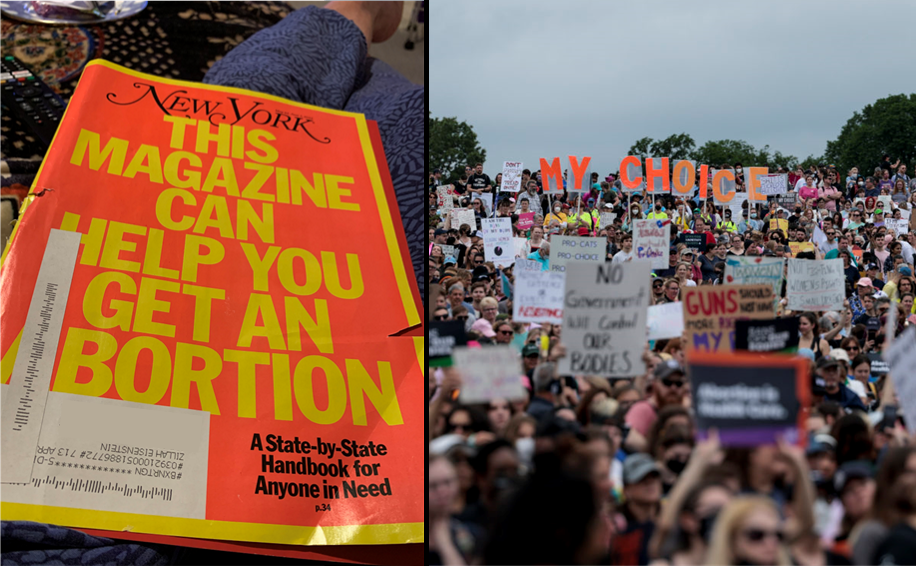Many friends and comrades have been asking for info on how to be present, and involved, and to donate money and skills. So it is important for us to find and respect the already established abortion and reproductive justice organizations and communities, and support them with funds and whatever skills you have to offer. I think all this will evolve more clearly in the next few months. But for now….
And because the way we think and what we see and who we see is at the heart of our politics and resistance, I have offered several important pieces for you to read if you want to mobilize your heart and mind once again. The best part of solidarity is that our community grows and deepens and the love we find in that process is what gives us the energy we need to never give up. So read and think and demonstrate and donate and we will win.
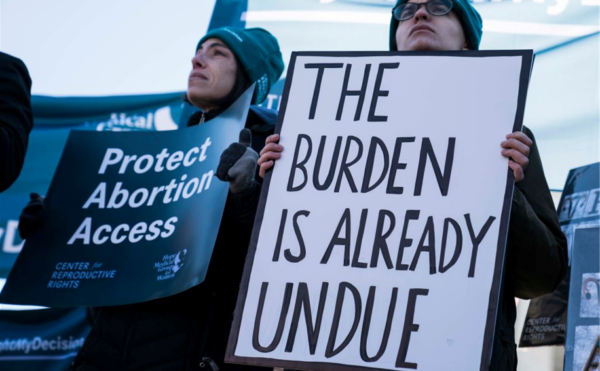
Some Things to Think About
See sites for donation and information below
Abortion activism is already in practice because Roe was never enough and the restrictions put on Roe over the past 50 years have been enormous. There have been fewer clinics, more regulation, and more expense, even before Roe was overruled. Given this limited access to abortion, especially for poor women of all colors, there is already a support network to assist women who need abortions.
But more of everything is needed now so funding and contributions are crucial. Most reproductive justice activists emphasize that solidarity is needed, not charity. Let those already building build further. Assist them with funds so they can do so.
I have been in incredible meetings about abortion/reproductive justice that make it clear how much fight back and organizing already exists given the hard life of Roe for the last decades. I am focusing on the strength of our fightback rather than feeling doomed, even though in my heart it feels so very hard. My daughter Sarah, a social medicine doctor and abortion provider, keeps me close to the everyday part of the struggle. The people closest to the crisis are just in it and working hard — so, so should we.
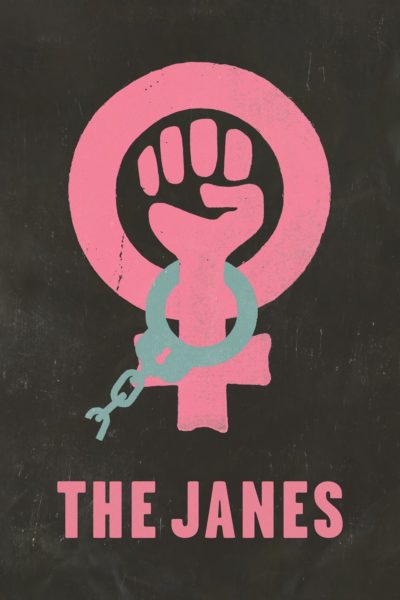
There is a unique mobilizing moment right now given the extremism of the Court. White middle-class women, many who have been able to enjoy the privileges of legalized abortion given Roe, are now rightly livid that this peaceful life with their citizen rights has just been stolen from them. Black and Brown women and all poor women — trans, cis, non-binary — are enraged, but their rage is not new as they have struggled to get access to abortion even when Roe stood. So this new and old rage and the skills and strategies for dealing with the limits of abortion access, legal or not, are an incredible source of powerful resistance. They should bind us together.
Some white women need to be careful to recognize that they are coming late to this struggle but also utilize their privileged rage to create even more hell. So, there is the possibility of deep and thick camaraderie across class and racial lines in this newest struggle for reproductive justice. The most racially and economically precarious women have always known abortion and reproductive justice is intersectional and endangered, and white women must follow their lead. Many of the sites to follow originate with the work of Black women and other women of color activists.
To Donate
The Miscarriage and Abortion Hotline is staffed by volunteer medical providers who answer questions for people undergoing self-managed abortion at home or experiencing miscarriages. Donations support the hotline’s technological and administrative costs. (Sarah volunteers here!)
The Abortion Freedom Fund funds telehealth abortions, which have traditionally not been covered by more established abortion funds.
The National Network of Abortion Funds focuses on reproductive liberation and reproductive oppression rather than simply abortion. It is very focused on the intersectionality of abortion — poverty, race and gender oppression. They emphasize: LOVE AND ACCEPTANCE IS A PART OF ACTIVISM. Check out their website and join.
The Brigid Alliance is the NYC-based abortion travel service.
Keep our Clinics provides support to independent abortion clinics and providers, who are facing increased security threats and operating costs.
Sister Song is the largest national multi-ethnic reproductive justice collective.
Indigenous Women Rising supports indigenous women around the world.
The National Birth Equity Collaborative supports reproductive justice as an issue for black women and families.
The Whole Women’s Health Alliance works against abortion stigma in our society.
These articles talk about various abortion funds and organizations supporting urgent and needed care across the U.S.:
Reproductive Justice | Giving Compass
“14 Abortion Funds To Support Now That Roe v. Wade Is Overturned—Where To Donate For Abortion Rights” by Sabrina Talbert | Women’s Health
“Donate to an Abortion Fund Right Now” by Bridget Read and Claire Lampen | The Cut
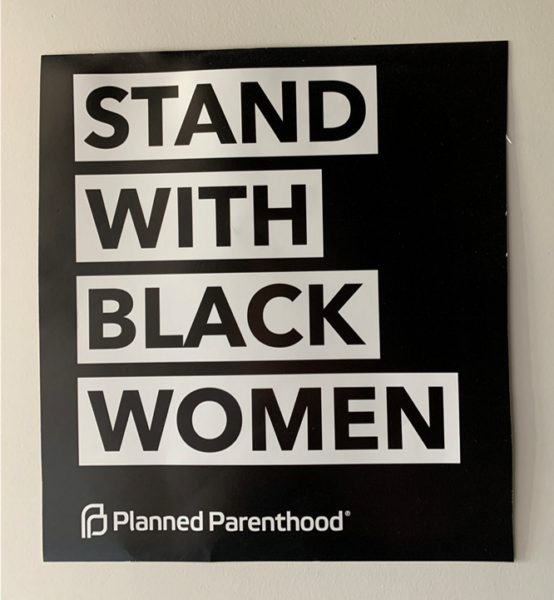
To Find Abortion Pills
Plan C lets you put in your state and lists all possible vetted options for buying pills online, including online pharmacies and telehealth options.
Aid Access provides online physician-support medication abortion on a sliding fee scale based on need.
Women on Web provides pills to people outside of the U.S.
M+A Hotline answers medical questions for people undergoing self-managed abortion or experiencing miscarriages at home.
INeedAnA.com helps people across the U.S. locate abortion clinics close to them.
Legal Questions
If/When/How: Reproductive Legal Helpline answers legal questions related to abortion.
The Center for Reproductive Rights supports reproductive rights and freedom as key human rights in the U.S. and around the world.
Reading to Further Clarify What’s at Stake and What to Do
Watch: “This Is What a Post-Roe Abortion Looks Like” by Ora DeKornfeld, Emily Holzknecht, and Jonah M. Kessel | The New York Times
“I reject the US abortion ruling. I vow to defend the sovereignty of women’s bodies” by V (formerly Eve Ensler) | The Guardian
A big concern now is that state laws like Texas’s are going to force Abortion funds themselves to stop their work. Let’s hope this can be averted:
To all our supporters, Yellowhammer Fund will be temporarily pausing services, but we aren't going anywhere and we will NEVER stop fighting for #ReproJustice in Alabama and the #DeepSouth. Please see the following statement from our team. pic.twitter.com/3aCS6EMYaj
— Abortion Should Be Free (@YellowFund) June 29, 2022
“Until Black Bodies are Free, None of Us Are Free” by Zillah Eisenstein | The Edge
“Tracking the States Where Abortion Is Now Banned” | The New York Times
“Meet the Dutch Doctor Helping Expand Abortion Access by Mailing Safe & Legal Pills Worldwide” | Democracy Now!
“No, Justice Alito, Reproductive Justice Is in the Constitution” by Michele Goodwin | The New York Times
“How to Discipline a Rogue Supreme Court” by Jamelle Bouie | The New York Times
“The New Abortion Strategies” | Lux Magazine, Haymarket Books
The African American Policy Forum Statement on Bodily Autonomy
“Voting Harder Won’t Bring Back Roe” with Lillian Cicerchia | Jacobin
“Mad About Roe? Here’s What to Do Now.” by Robin Marty | The New York Times
Watch: “Resist” by Janis Ian
Watch: “F*** You” by Olivia Rodrigo
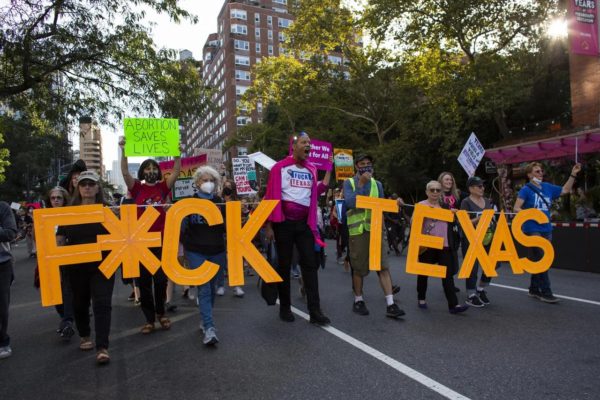
Further Reading Prepared by Showing Up For Racial Justice NYC (SURJ )
“Abortion’s Racial Gap” by Zoe Dutton | The Atlantic
“On Juneteenth weekend, Black activists march for abortion rights” by Sarah McCammon | NPR
Watch: “Mobilizing for Reproductive Justice in the Battle for Bodily Autonomy” | Political Research Associates
Watch: “Feminist Future Series – Feminism Beyond White Supremacy: Where We Have Been and Where We Need to Go” | Women’s March
“The Racist History of Abortion and Midwifery Bans” by Michele Goodwin | ACLU
“How Texas abortion law is undermining Native American women’s reproductive justice” by Erik Ortiz | ABC News
Watch: “The lesser-known racist history of the so-called pro-life movement” | Showing Up for Racial Justice
Zillah Eisenstein is a noted international feminist writer and activist and professor emerita, political theory, Ithaca College. She is the author of many books, including “The Female Body and the Law” (UC Press, 1988), which won the Victoria Schuck Book Prize for the best book on women and politics; “Hatreds” (Routledge., 1996), “Global Obscenities” (NYU Press, 1998), “Against Empire” (Zed Press, 2004), and most recently, “Abolitionist Socialist Feminism” (Monthly Review Press, 2019).
Sarah E. Stumbar, M.D., MPH, works at a mobile health clinic for undocumented and uninsured people in Miami and is associate professor of family medicine at Florida International University Herbert Wertheim College of Medicine, where she designs anti-racist sex and gender curriculum; and provides abortion access.

